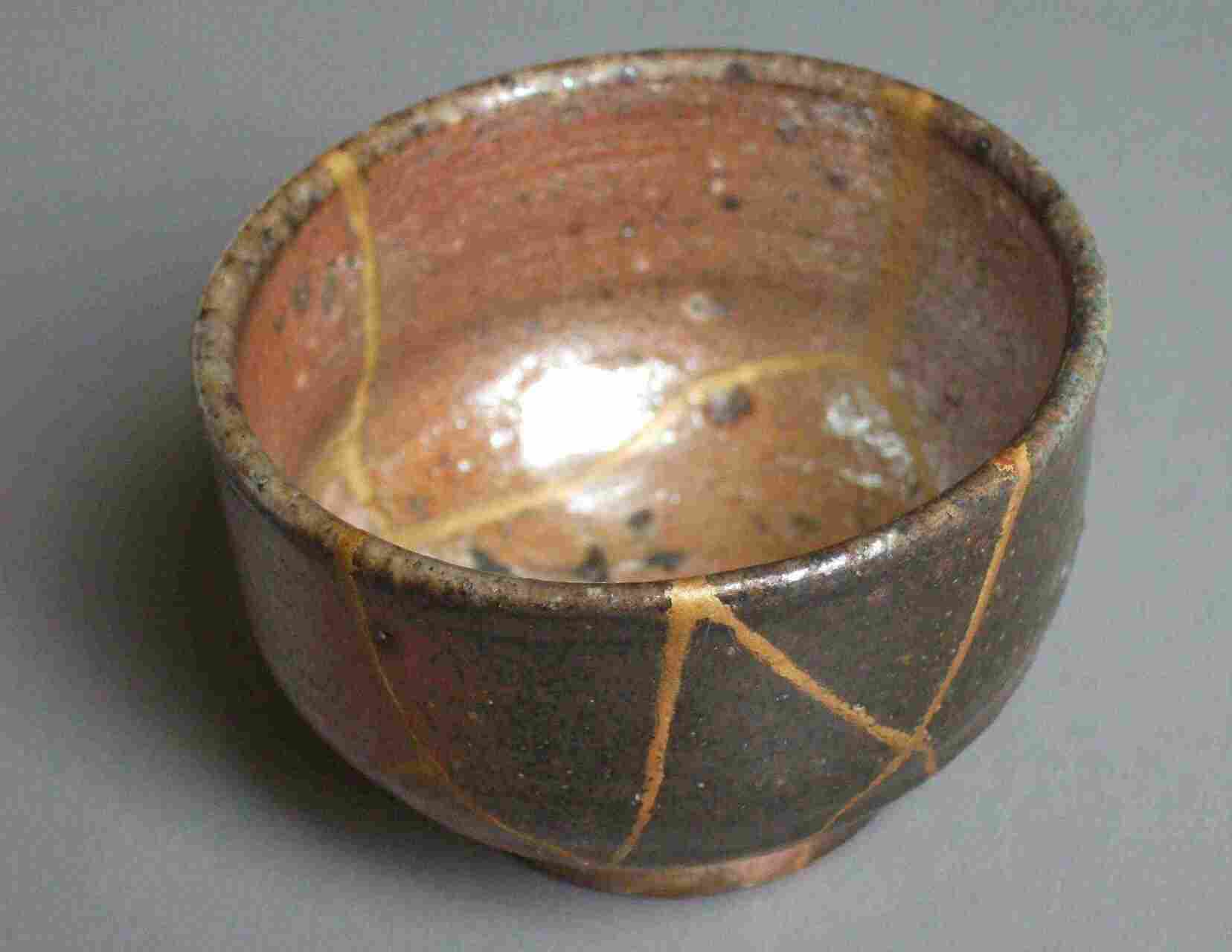Sharing is caring!
1. Wabi-sabi
It’s only when you’ve accepted all of yourself for who you are that you’re truly free.
As the Legendary writer, George R.R. Martin wrote in The Game of Thrones,
“Never forget what you are, for surely the world will not. Make it your strength. Then it can never be your weakness. Armour yourself in it, and it will never be used to hurt you.”
Most people suffer mentally and socially because they’re either rejecting or trying hard to suppress certain aspects of themselves. Their height, color, weight, figure, etc., make them wonder if the guy or girl in the corner is judging them.
This is what often leads to depression and social anxiety.
But what if you embraced these imperfections — that you can’t change — and took them as a part of your identity?
In psychology, there’s a phenomenon called the beautiful mess effect. And it explains that our imperfections make us more attractive if we accept them first.
The girl or guy who can easily make a joke about themselves is so fun to be with because their vulnerability empowers us and makes us feel unashamed about our own deficiencies.
Nothing — and no one — is perfect.
Always learn to find beauty in every mess. This Japanese concept, Wabi-sabi, means to embrace your imperfections. They’ll make you stronger.
2. Kintsugi
Kintsugi is the Japanese art of mending broken pottery with gold. Like this one:

Look how the cup became more beautiful precisely because of the broken parts that were mended with gold. There’s a deep lesson here for all of us.
All your faults and imperfections are just like those broken parts. But what you do with it is what will determine whether your life turns out beautiful or not.
We’re all the broken cup. But not everyone becomes the beautifully designed cup mended with gold.
Why?
Some people go through hardships and become broken. They use their hard past as an excuse to live the rest of their lives in nihilism.
But some choose to mend their hardships with gold. They look through their lives with a fine-toothed comb and make the most of what they have. Even better, they use their hardships as lessons to get ahead.
Also read: 5 Things You Can Do Today to Be Much Wiser
3. Omoiyari
We’re all often too obsessed with furthering our own agenda in life.
In social interactions, we’re riddled with anxiety because we want to put our best foot forward, tell the best jokes, and win everyone over. But in reality, the most charismatic people are gifted at giving the stage to others.
Omoiyari means to show consideration for others.
Life is better and easier for you when you can relax and look outside yourself.
Don’t prey on the doorman or the weak kid to boost your ego. Look into their eyes and realize they also have a world of their own. They have unmet wishes. They also want to be acknowledged and appreciated. The most mature people are on this level of empathy.
4. Oubaitori
In Japan, Cherry, Plum, Peach, and Apricot are four trees that blossom in spring.
Though these four trees bring out beautifully colored flowers, each blossoms at a different pace in its unique way. This is how Oubaitori came to represent an expression in Japan that means everyone blossoms in their own unique way.
It’s a remarkable lesson if you meditate on it deeply.
Especially in the age of social media, it’s difficult to remember that everyone blossoms differently when it seems like every other person has it better than you.
We are always comparing what happens behind the scenes of our lives to everyone else’s highlight reels. And this assumption that most people are blooming while we’re just there, living an ordinary life that will never take off rubs us with fulfillment and happiness more than anything else.
If you see your life this way, always remember, Oubaitori. Never compare yourself because everyone blooms in different ways in their own unique way. Don’t use someone else’s path to judge yourself.
5. Kaizen
Whether they’re consciously aware of it or not, everyone who has achieved anything remarkable in life followed the concept of Kaizen.
It’s also the central theme of the book, Mindset, by the psychologist Carol Dweck where she succinctly wrote,
“Becoming is better than being.”
It’s easy to get excited about new goals now and then. The new year is coming, and we’re going to get swamped up with the excitement of getting into shape, starting a new lifestyle, reading X amount of books, eating clean, etc.
But most of these resolutions won’t make it to the second week of the new year.
Why? The picture of the end goal is what excites them. They don’t like the process of becoming.
Those who achieve things in life have the mindset of Kaizen. They get the kick out of the small improvements. They’re not so worried about a big end goal. It’s just improvement. And because of this, the extent to which they can improve is boundless.
For any great person out there, small positive changes accumulated to make them who they are. Learn to take it one step at a time and enjoy the process. This is Kaizen. It means continuous improvement.
Interesting: 6 Signs You’re Smarter Than You Think
6. Mottainai
Mottainai is an expression commonly used by environmentalists in Japan. And they use it to emphasize the importance of not wasting what’s valuable — even if they appear to be waste.
From a broader perspective, it simply means that you recognize the value of what’s around you so that you don’t waste it.
I find this concept quite remarkable because it relates on a deep level, even if you may not realize it.
Most people have the same resources — time-wise and financially — at their disposal, but live different kinds of lives because of how they value what’s freely available to them.
The difference in the quality of life we live often just lies in our ability to see and appreciate what’s around us.
If you see the value in the 24 hours that you have in a day, you’ll spend that precious time doing meaningful things. But if you don’t, you’ll be one of those who can easily sit all day in one room and play video games.
If you see the value in having your family and loved ones around you, then you’ll spend precious time doing meaningful things with them. But if you don’t, you might waste precious energy picking fights and blaming everyone for what’s going wrong in your life.
Recognize the value of what’s around you so that you don’t waste it. As the german philosopher, Arthur Schopenhauer wrote,
“We should sometimes try to look upon our possessions in the light in which they would appear if we had lost them.”
7. Gaman
Gaman has a Zen Buddhist origin. It means “enduring hardship with patience and dignity.” It’s similar to stoicism. And it’s no doubt easier said than done.
But what other alternative do you have in the face of hardship?
Shift blame? Cry? Do more harm to yourself and others?
Of course, any of these responses feel more impulsive and soothing when the heat is on, but none of them will create a better outcome from a hardship.
It’s only through calmness that you can find the best way out of a hard situation. Besides the fact that you’ll be able to think well, you’ll also prevent a terrible situation from escalating. The 19th-century American philosopher, Henry David Thoreau, put it best:
“However mean your life is, meet it and live it; do not shun it and call it hard names.
8. Ikigai
This one is a bit more popular. It means “your reason for being.”
Your Ikigai doesn’t have to be some romanticized idea of passion. Rather, it simply means to live deliberately.
You’re not being impulsive and reactive to everything going on around you. You’re not taken away and distracted by pleasures and quick distractions. You’re mindful of how you use your time. And you’re careful about what you let consume your energy.
Every spiritual leader understands this concept perfectly well. This is why you’ll see them extremely calm and joyful with everyone. They don’t live their life being reactive and impulsive.
The energy they give out to the world is calm and deliberately chosen by them. They only do what’s meaningful. Every action serves a good purpose because they know their Ikigai.
Related: 6 Hidden Mind Tricks to Easily Remember Anything You Read
Sharing is caring!
